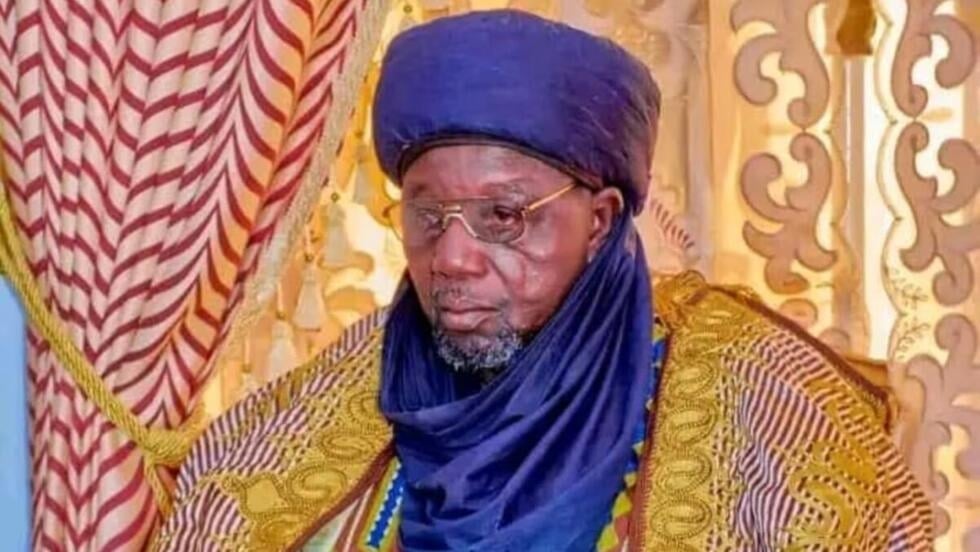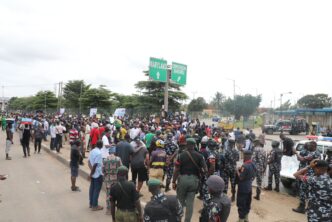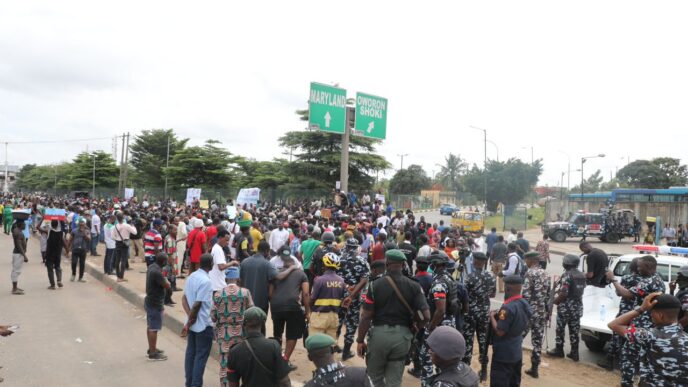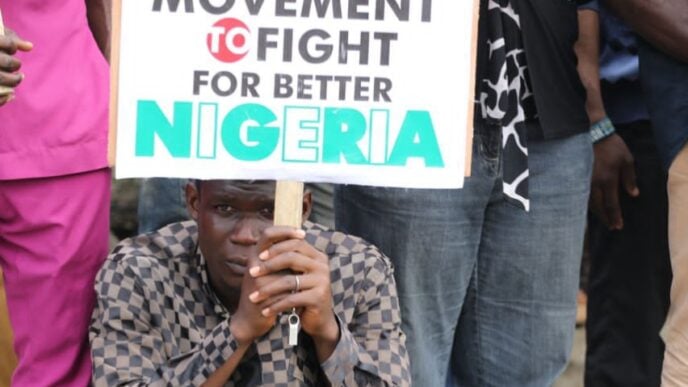BY KABIR FAGGE ALI
The tragic and brutal murder of the Emir of Gobir, Isa Bawa, in the hands of daredevil bandits has added yet another incident to the annals of security woes in Nigeria recently.
Although the minister of state for defence, Mohammed Bello Matawalle, has given a marching order to the chief of defence staff (CDS), General Christopher Gwabin Musa, to fish out the killers, this directive is not enough without the corresponding walk of the talk.
Recall that Bawa was abducted and subsequently killed in cold blood inside a remote forest where he was held captive. This heinous event occurred despite attempts to secure his release through ransom negotiations, which ultimately failed. Although local sources confirmed the emir’s death, there was a delay in official confirmation from the Sokoto state government and law enforcement agencies.
Advertisement
This incident starkly illustrates the intensifying violence in the north-west. This region remains severely affected by insecurity despite two influential defence ministers from the region; Muhammad Badaru Abubakar, the minister of defence, and Bello Matawalle, the minister of state for defence.
It is an undeniable fact that the two ministers have made significant contributions despite criticisms. Badaru, known for his reform-oriented leadership, enhanced Jigawa state’s economy, agriculture, and infrastructure during his governorship, and he now applies this experience to the ministry of defence, aiming to restructure and improve security coordination.
Matawalle, former governor of Zamfara state, has actively tackled banditry through controversial peace deals that temporarily reduced violence. His practical experience and understanding of regional security issues are valuable assets in combating banditry.
Advertisement
However, both men face significant challenges that cannot be ignored. Badaru’s lack of military experience has raised questions about his ability to effectively lead the ministry. While his governance experience is valuable, it may not be enough to tackle national defence’s highly specialised and complex demands.
Matawalle, on the other hand, is dogged by allegations of collaboration with bandit groups when he granted them amnesty for peace to reign in his domain. These accusations have severely tainted his public image and have led to widespread scepticism about his commitment to ending the violence. These figures should know that the public perception of both ministers is critical and far from favourable at the moment.
Both figures were expected to leverage their understanding of local issues to effectively combat the growing threat of banditry. However, their efforts appear to have had a minimal impact, prompting widespread frustration and concern among the residents of the north-west and Nigeria as a whole.
The murder of Emir Bawa is not an isolated event. It is part of a broader, horrifying trend of violence that has gripped the north-west, leaving a trail of devastation in its wake. Communities that once thrived are now under siege, with countless lives lost and many more disrupted by the relentless onslaught of banditry. This region, which boasts of producing the two incumbent defence ministers, is ironically the same region that continues to suffer the most from insecurity.
Advertisement
Badaru and Matawalle were expected to be the region’s champions in tackling insecurity, with their roots deep in the north-west. Meanwhile, their appointments to the defence ministry were met with a widespread and palpable mix of reactions from pundits, analysts, experts, and the nationwide general public.
Part of the expectation was that their intimate knowledge of the region’s complexities would drive a more effective response to the banditry that has plagued the area for years. However, the reality has been starkly different. Instead of declining violence, the region has seen an uptick, with bandits growing bolder and more ruthless.
The complication of local politics is undoubtedly a significant factor in their struggles. Both Badaru and Matawalle are deeply entrenched in a political landscape that is as treacherous as it is complex. Local politicians, traditional rulers, and even some security personnel are alleged to have ties to the very bandits they are supposed to combat. This creates a tangled web of alliances and enmities that makes decisive action difficult, if not impossible. Yet, this cannot be an excuse. The people of the north-west deserve leaders who can cut through this complexity and deliver the security they desperately need.
Despite their challenges, Badaru and Matawalle’s expectations are immense, and rightly so. Their positions are not lifetime appointments; they are finite terms with a heavy responsibility burden. Time is not on their side, and the clock is ticking. The people of the north-west need action now, not later. Every day without a significant shift in strategy is another day that the bandits tighten their grip on the region.
Advertisement
While the situation’s urgency cannot be overstated, it is also crucial to recognise that the bandits are not discriminating against their targets. They are willing to attack anyone, regardless of status or position. No one is safe from their wrath, from children to students, farmers to traditional rulers. This relentless campaign of violence seems to be spreading unchecked, and there is a growing fear that it may soon target even higher-profile individuals.
The people of the north-west are running out of patience, and understandably so. The murder of Emir Bawa should serve as a wake-up call to both Badaru and Matawalle. The north-west cannot afford to lose any more lives to banditry. Comprehensive and objective security reforms are not just necessary; they are urgent. These reforms must address the root causes of banditry, including poverty, unemployment, and the proliferation of arms. They must also hold accountable those within the political and security establishments who have allowed this violence to continue unchecked.
Advertisement
The duo ministers have the power to make a difference, but they must act quickly and decisively. Their legacies and the future of their region depend on it. The people of the north-west deserve leaders who will not just hold office but will take bold and practical actions to secure their lives and properties.
The time for promises and rhetoric is over. What is needed now is swift, decisive, and effective action that will bring an end to the violence that has plagued the north-west for far too long. Therefore, it is hoped that just as the ministers vowed, justice should be served on the perpetrators who continued disturbing the peace of law-abiding Nigerian citizens.
Advertisement
Kabir Fagge Ali is a youth corps member with PR Nigeria Centre. He can be contacted via [email protected]
Advertisement
Views expressed by contributors are strictly personal and not of TheCable.










